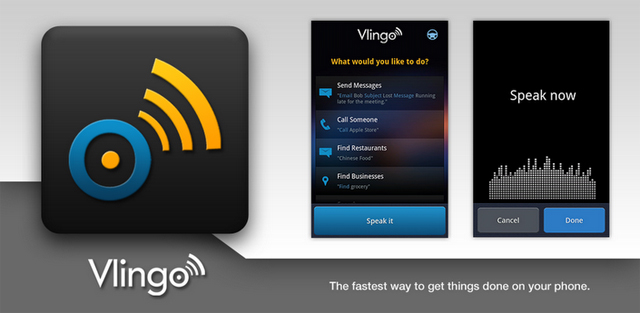Vlingo Addresses Latest Privacy Concerns, Apologizes For Mistakes

Vlingo has come under scrutiny lately for apparently sending more data than they explain in their privacy agreement. These discrepancies were first noticed by the guys over AndroidPit and then later investigated by Android Central. According to Android Central:
Our conclusion is that everything’s on the up-and-up, but there were some issues with the way their privacy agreement was written or presented to the user and a software bug or two at work.
It appears the problems were due to numerous issues including the fact that there is a version of Vlingo in the Market as well as a version pre-loaded by OEMs. Privacy agreements for each individual version were getting confused and Vlingo takes full responsibility. They were extremely transparent about their errors, which you can read for yourself at the end of this article. It’s always bothersome when a company screws up and it takes an independent person to discover it. However, it’s nice to see Vlingo taking full responsibility and making the appropriate fixes.
You can find more information about the privacy/security issues by following the source link after Vlingo’s response.
We take any claims about our customers’ privacy and security very, very seriously. We certainly appreciate that we have individuals who are passionate enough about Vlingo’s products and about their own privacy rights to conduct this sort of in depth investigation. No question it has raised some real issues, and we have already begun to address the bugs internally.
First, to be clear, Vlingo does make use of information about each device in order to improve the quality of our service. Some examples of this include:
We use the current location of the device to improve search results, for example, to display nearby restaurants when the user does a restaurant search.
We use the device make & model to improve recognition accuracy since microphone characteristics can vary from one type of device to the next.
We use names from the address book on the device to improve speech recognition accuracy (and to spell those names correctly) when users speak those names while performing tasks like voice dialing or SMS dictation.
We use song titles and artist names from music on the device to improve speech recognition accuracy when users speak those names while requesting that specific music be played.
We use the carrier information to work around some issues we’ve found on some carrier-specific wap gateways
While we transmit and store this information, Vlingo itself does not store any user-identifiable information—meaning we have no way to associate a list of songs or contact names to the user they came from.Even though we intend to be very transparent about what information we are using in our Privacy Policy, we have discovered that our Privacy Policy is somewhat out of date. For example, we are not mentioning the fact that we are sending song titles and artist names from the device. We will be updating the Privacy Policy to reflect this.
The above information is currently being sent via the HTTP protocol. We are in the process of migrating our communication protocols from HTTP to more secure HTTPS. Already, some of our client applications are using HTTPS, and new versions of our applications will be using HTTPS in the future.
In many cases, we are using the device IMEI as the unique identifier to distinguish communication from different devices to our system, which matches the convention used by many other mobile applications to identify unique devices. The IMEI cannot be used to track the actual identification of the user, but we understand that in some rare cases, the IMEI can be abused. We’re investigating switching to other mechanisms like cookies in the future.
We have found several bugs that are causing us to send more data than we intend:
If you start the application for the first time using the widget (and only using the widget) and then cancel out of the initial disclaimer, we are currently sending some device-specific data to the server erroneously.
Our application is currently including the device location information with device information like contact names and song titles. Our intention is to only send location with a speech recognition request, and the location should be omitted from background device-information transmissions.
These issues are errors and are by no means intentional. We plan to fix them as soon as possible and will release updates to the user community as well as through our OEM partners. In addition, we will be improving our processes to ensure that our application behavior with respect to privacy matches our intention.For users who are happy with the Vlingo application and want to continue using it, we thank you and recommend that you continue using the service. For users who want to stop using Vlingo and are concerned that our servers can still contain data from your device, you can contact email hidden; JavaScript is required with your IMEI, and we will remove sensitive information such as contact names from our servers.
Again, we are grateful to the individuals that uncovered these security issues. We are all very proud of the service that Vlingo provides to millions of happy active users, we apologize for these mistakes, and we are doing all we can to ensure that our users can continue accessing our application in full knowledge that their personal information is secure.
- SourceAndroid Central


